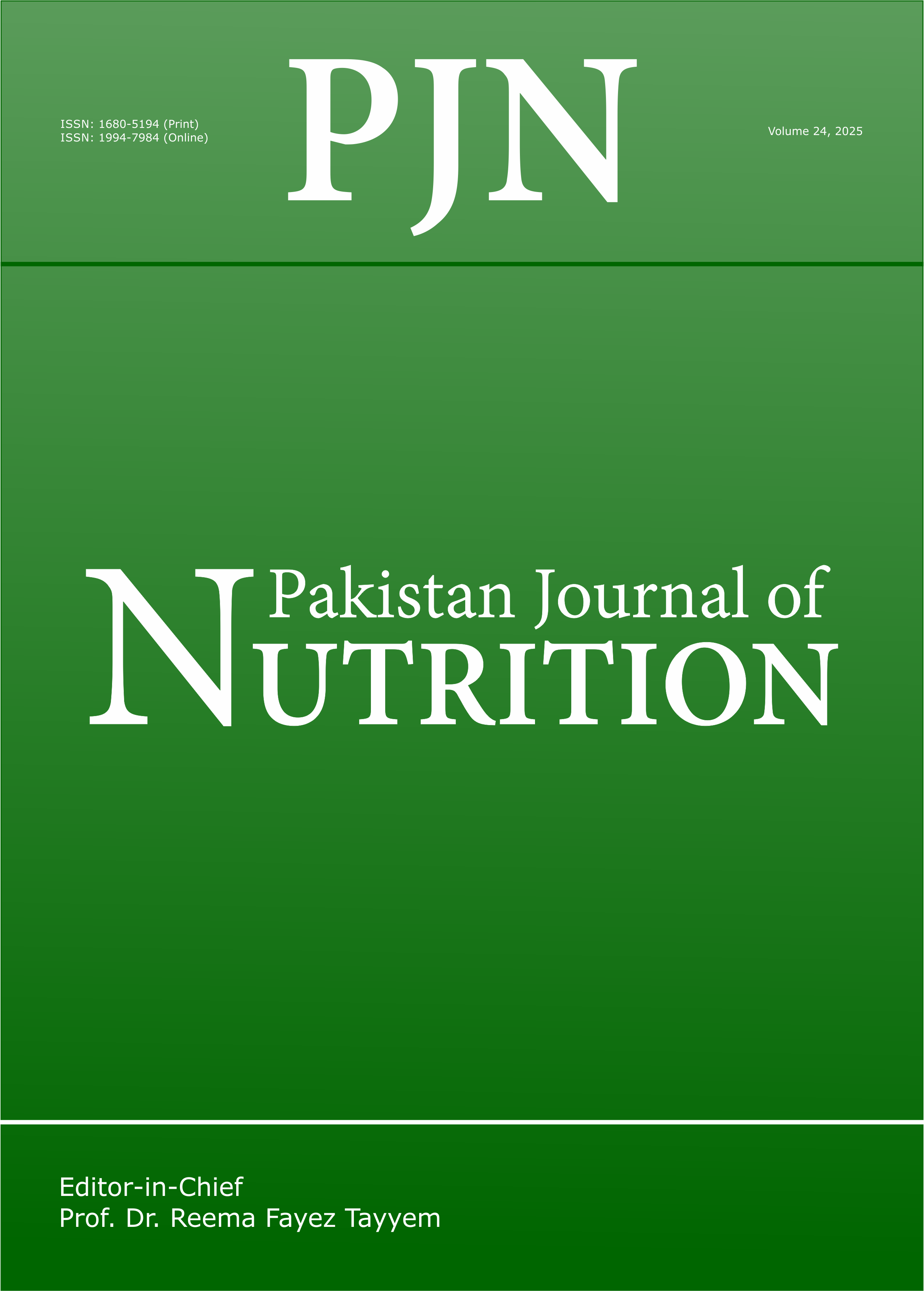The Effects of Vitamin E on Endosulfan - Induced Oxidative Stress in Rat Heart
DOI:
https://doi.org/10.3923/pjn.2007.375.380Keywords:
Antioxidant enzymes, endosulfan, heart, Vitamin EAbstract
Endosulfan, an organochlorine insecticide and acaricide, has been used in agriculture for several years. The aim of present study was to analyze the cardiotoxic effect of endosulfan which caused biochemical changes in heart of male rats and to evaluate the possible protective effect of vitamin E. Vitamin E (200mg/kg, twice a week), endosulfan (2mg/kg per day, once a day in corn oil) and Vitamin E (200mg/kg, twice a week) + endosulfan (2mg/kg per day, once a day in corn oil) combination were given to rats (n=6) orally via gavage for 4 weeks. GPx and CAT activities were measured in tissues samples. Gpx, CAT and SOD activities increased in the endosulfan - treated group heart tissues compared to control group (P<0.01, P<0.05 and P<0.01 respectively). GPx and SOD activities decreased in the endosulfan+vitamin E - treated group compared to endosulfan - treated group (P<0.05). Decrease of CAT activity was not significant in the endosulfan+vitamin E - treated group compared to endosulfan - treated group. We conclude that vitamin E significantly reduces endosulfan - induced oxidative stress in rat heart.
Downloads
Published
Issue
Section
License
Copyright (c) 2007 Asian Network for Scientific Information

This work is licensed under a Creative Commons Attribution 4.0 International License.
This is an open access article distributed under the terms of the Creative Commons Attribution License, which permits unrestricted use, distribution and reproduction in any medium, provided the original author and source are credited.

